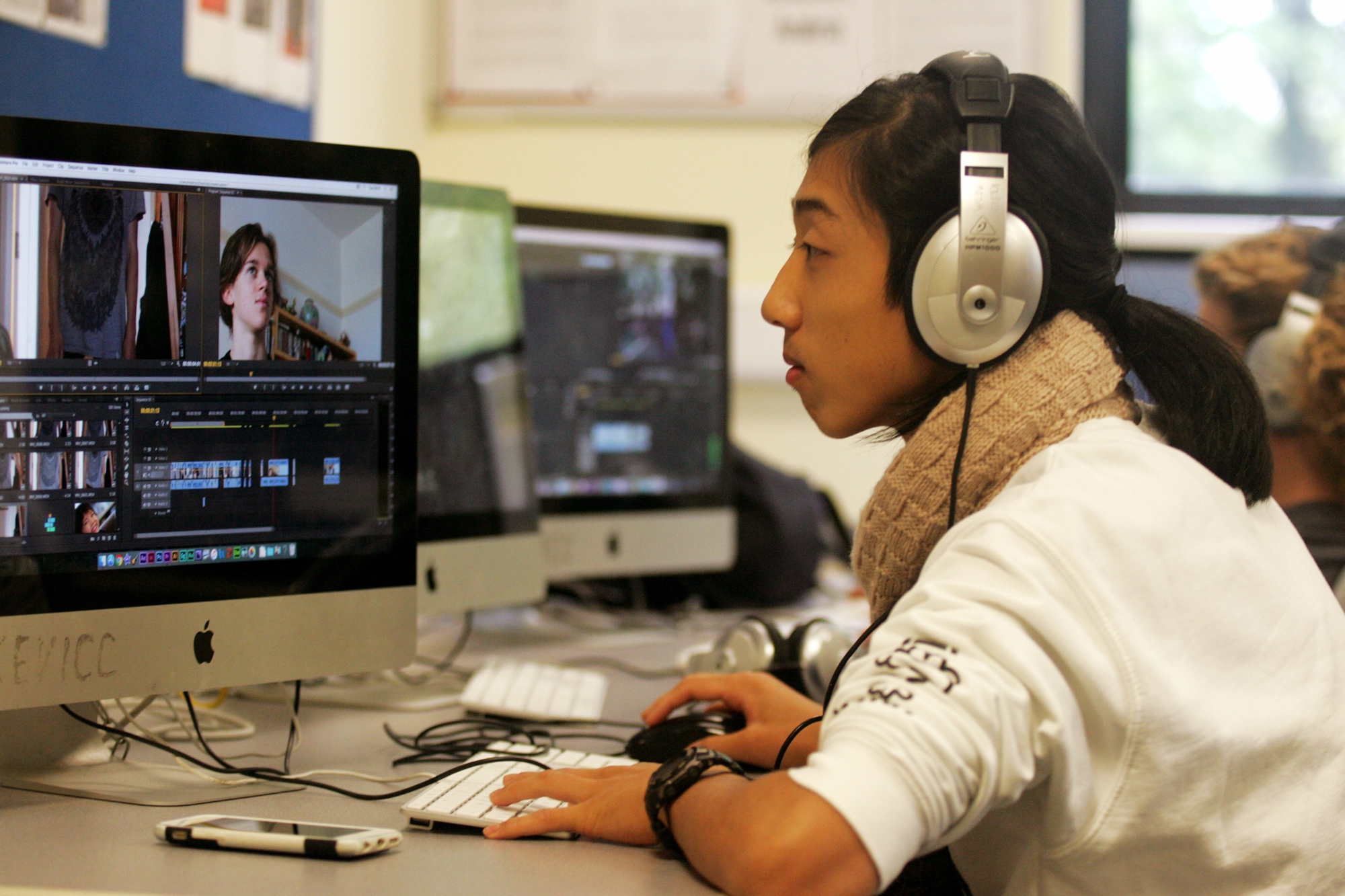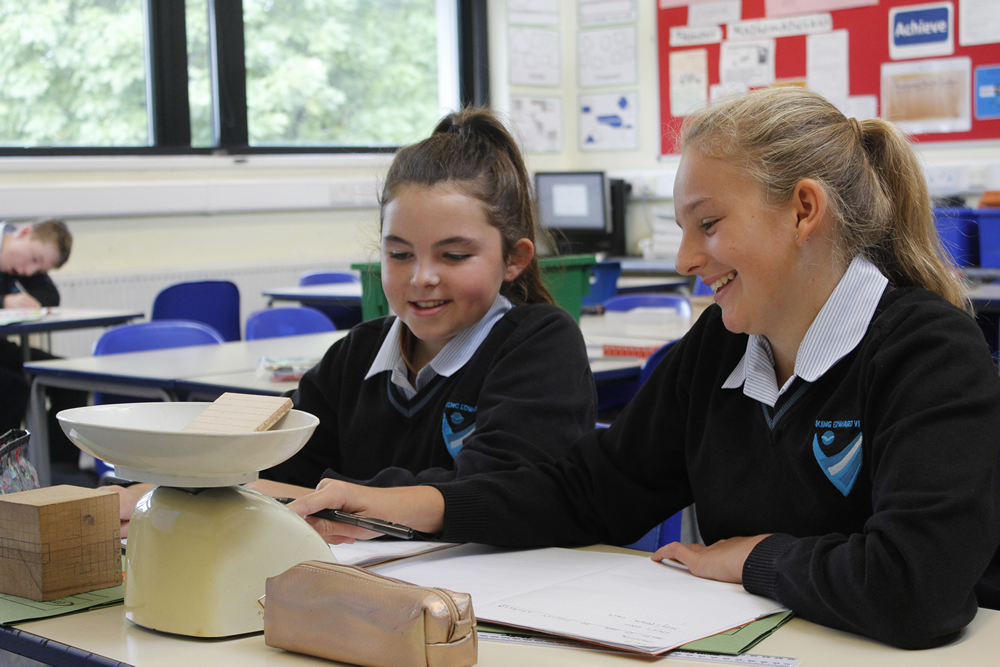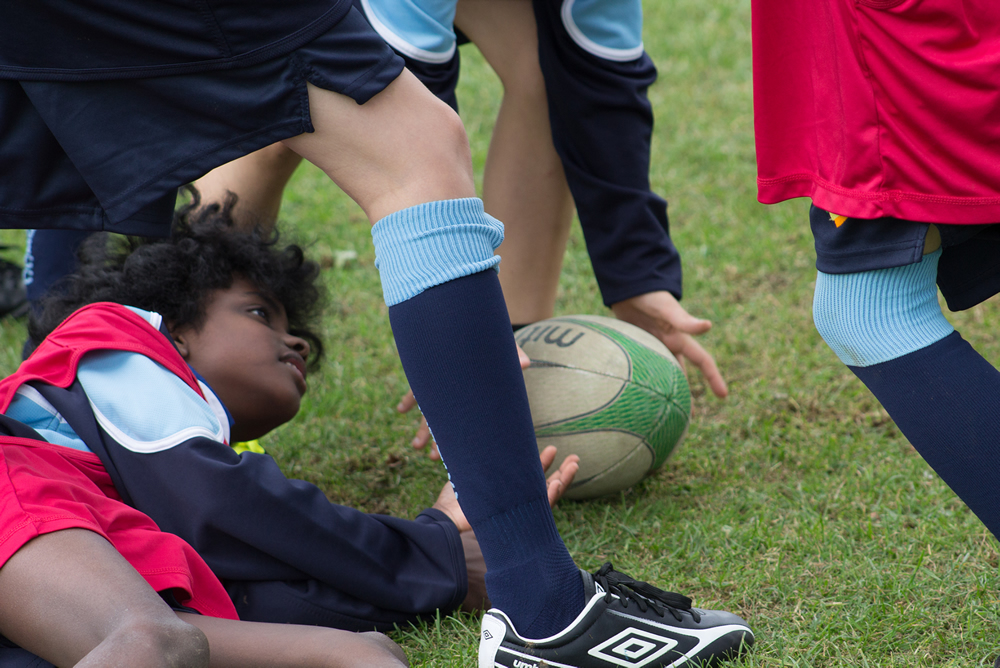Key Stage 5
Mathematics Advanced Subsidiary Level
Qualifications: GCE AS Level
Exam Board: tbc
Entry Requirements: A good grade at GCSE Higher tier Maths. e.g. Grade 6 or above.
Note: This is a one year course and students opting for this course should ensure they are studying three other subjects.
Overview
Mathematics is an exciting and challenging subject which can be studied for its own sake or to support a range of other subjects. Maths lies at the heart of all technological innovations of recent years and is highly valued by both universities and employers.
This is a one year course and is suitable for those students who require a good level of Mathematics to support their other subjects and future ambitions. It is designed to run alongside the first year of the A level in Mathematics.
What will I learn?
The course is divided into two parts: Pure and Applied.
Pure Maths is the study of algebra, trigonometry, geometry and calculus and is essential for both the understanding of the subject and to provide the tools to deal with real life applications. This comprises two thirds of the course content.
Applied Maths is the study of the way in which Maths is used in life and covers one third of the course content:
- Statistics is the most familiar area as some of the concepts would have been studied at GCSE. Topics covered are probability, representing data and interpreting data.
- Mechanics is the most suitable for students taking Physics and important for anyone considering a career in engineering, design or architecture. Topics covered are Kinematics, applications of calculus, Forces and Newton’s laws.
How will I learn?
In mathematics, the emphasis is on understanding concepts, practising techniques and solving problems. Through discussion, teacher-led exposition, individual study and group work, you will learn to analyse and solve problems. Some topics involve the use of graphical calculators and computers. Students are encouraged to have their own graphical calculator. In mathematics at Kennicott, it is expected that every student has an excellent work ethic. Not only will you be expected to focus on, and contribute to, class discussion, but a substantial amount of independent study will be required.
Where could it lead?
A Level Maths opens up a wide range of career options and recent research suggests that those who have a Maths A Level earn an average 10% higher income. Maths affects everything we do in our lives. It forms the basis for many other subjects and is fascinating in its own right. It can lead to a variety of fulfilling careers from engineering, design and architecture to philosophy, geography and even careers in music and the media. The list is endless.
Note Those students who choose to do this AS course will have the option to continue on to the full A level in the second year if they are making good progress.
Contact
Damian Yates: Raising Standards Leader dyates@kingedwardvi.devon.sch.uk
Mathematics Advanced Level
Qualifications: GCE A Level
Exam Board: tbc
Entry Requirements: Grade 7 or above at GCSE Mathematics.
Overview
Mathematics is an exciting and challenging subject which can be studied for its own sake or to support a range of other subjects. Mathematics lies at the heart of all technological innovations of recent years and is highly valued by both universities and employers.
What will I learn?
Year 12 During the first two terms of year 12 students will cover the AS Mathematics content:
Pure Maths is the study of algebra, trigonometry, geometry and calculus and is essential for both the understanding of the subject and to provide the tools to deal with real life applications. This comprises two thirds of the course content.
Applied Maths is the study of the way in which Maths is used in life and covers one third of the course content:
- Statistics is the most familiar area as some of the concepts would have been studied at GCSE. Topics covered are probability, representing data and interpreting data.
- Mechanics is the most suitable for students taking Physics and important for anyone considering a career in engineering, design or architecture. Topics covered are Kinematics, applications of calculus, Forces and Newton’s laws.
Year 12 / 13
Pure Maths. Students will study proof, partial fractions, functions, parametric equations, binomial expansion, sequences, trigonometry, further calculus, differential equations, numerical methods and vectors. This comprises two thirds of the course content.
The applied content, statistics and Mechanics, comprises one third of the content:
- Statistics. Students will study further probability, the Normal distribution and Hypothesis testing.
- Mechanics. Students will study projectile motion, moments, and Friction. The work on Kinematics, forces and Newton’s laws will be extended to more than one dimension and to more complicated situations.
How will I learn?
In mathematics, the emphasis is on understanding concepts, practising techniques and solving problems. Through discussion, teacher-led exposition, individual study and group work, you will learn to analyse and solve problems. Some topics involve the use of graphical calculators and computers. Students are encouraged to have their own graphical calculator. In mathematics at Kennicott, it is expected that every student has an excellent work ethic. Not only will you be expected to focus on, and contribute to, class discussion, but a substantial amount of independent study will be required.
Where could it lead?
A Level Maths opens up a wide range of career options and recent research suggests that those who have a Maths A Level earn an average 10% higher income. Maths affects everything we do in our lives. It forms the basis for many other subjects and is fascinating in its own right. It can lead to a variety of fulfilling careers from engineering, design and architecture to philosophy, geography and even careers in music and the media. The list is endless.
Contact
Damian Yates: Raising Standards Leader dyates@kingedwardvi.devon.sch.uk
Further Mathematics Advanced Subsidiary Level
Qualifications: GCE AS Level
Exam Board: tbc
Entry Requirements: Grade 7 or above in GCSE Maths.
Note This is a one year course and students opting for this course should ensure they are studying three other subjects, one of which needs to be A level Mathematics.
Overview
Further Mathematics involves studying many exciting new ideas and this course is designed for students who enjoy exploring the world of mathematics and who have a real passion for the subject. It is particularly useful for anyone considering a career in maths, engineering, electronics, economics or accountancy.
What will I learn?
Pure Maths This comprises 30% of the course and covers topics such as matrices, complex numbers, graphs, further algebra, vectors and proof by induction.
Applied Maths/optional content comprises 70% of the course. Areas of study will be chosen from a number of available units such as Further Mechanics, Further Statistics, modelling with algorithms and numerical methods.
How will I learn?
Through discussion, teacher-led exposition, individual study and group work, you will learn to analyse and solve problems. Further Maths will differ to normal Maths in that there will be more emphasis on problem solving: this is what universities are looking for in good mathematicians.
Some topics involve the use of graphical calculators and computers. Students of Further Mathematics will be expected to purchase their own graphical calculator.
In Mathematics at Kennicott, it is expected that every student has an excellent work ethic. Not only will you be expected to focus on, and contribute to, class discussion, but a substantial amount of independent study will be required.
Where could it lead?
Further Maths, like A Level Maths, opens up a wide range of career options and recent research suggests that those who have a Maths A Level earn an average 10% higher income. Maths affects everything we do in our lives. It forms the basis for many other subjects and is fascinating in its own right. It can lead to a variety of fulfilling careers from engineering, design and architecture to philosophy, geography and even careers in music and the media.
Note Those students who choose to do this AS course will have the option to continue on to the full A level in the second year if they are making good progress.
Contact Damian Yates: Raising Standards Leader dyates@kingedwardvi.devon.sch.uk
Further Mathematics Advanced Level
Qualifications: GCE A Level
Exam Board: tbc
Entry Requirements: Grade 7 or above in GCSE Maths.
Note Students opting for this course will also need to study A level Mathematics.
Overview
Further Mathematics involves studying many exciting new ideas and this course is designed for students who enjoy exploring the world of mathematics and who have a real passion for the subject. It is particularly useful for anyone considering a career in maths, engineering, electronics, economics or accountancy.
During the first two terms of year 12 students will cover the AS Further Mathematics content
What will I learn?
Pure Maths This comprises 50% of the course and covers topics such as matrices, complex numbers, graphs, further algebra, vectors, proof by induction, series, further calculus, hyperbolic functions and differential equations.
Applied Maths/optional content comprises 50% of the course. Areas of study will be chosen from a number of available units such as further mechanics, further statistics, modelling with algorithms, numerical methods and further pure maths.
How will I learn?
Through discussion, teacher-led exposition, individual study and group work, you will learn to analyse and solve problems. Further Maths will differ to normal Maths in that there will be more emphasis on problem solving: this is what universities are looking for in good mathematicians.
Some topics involve the use of graphical calculators and computers. Students of Further Mathematics will be expected to purchase their own graphical calculator.
In Mathematics at Kennicott, it is expected that every student has an excellent work ethic. Not only will you be expected to focus on, and contribute to, class discussion, but a substantial amount of independent study will be required.
Where could it lead?
A Level Further Maths, like A Level Maths, opens up a wide range of career options and recent research suggests that those who have a Maths A Level earn an average 10% higher income. Maths affects everything we do in our lives. It forms the basis for many other subjects and is fascinating in its own right. It can lead to a variety of fulfilling careers from engineering, design and architecture to philosophy, geography and even careers in music and the media.
Contact Damian Yates: Raising Standards Leader dyates@kingedwardvi.devon.sch.uk
Computer Science Advanced Level
Qualification: GCE A Level
Exam Board: AQA
Entry Requirements: 5 GCSEs at grades A*-C including English and Maths (B grade in Maths is preferred) Grade C or above in GCSE Computer Science (if taken) – student CAN take this course without having done GCSE Computer Science
Overview
A level Computer Science is an exciting new course open to students who have studied Computer Science at GCSE and those who would like to start a new challenge. The subject suits students who already have an interest in how computers work or how to program and have a good level of Maths.
The course is broken down into three units, each assessed in a different way. Unit 1 has a 2½ hour on-screen exam to test student’s abilities to program, as well as their theoretical knowledge of computer science. Unit 2 has a 2½ written paper on a range of computer science topics from data representation and databases to computer architecture and communication networks. Unit 3 involves students investigating and solving a real problem using a systematic approach and the application of their programming skills.
The first year of the course will cover parts of units 1 and 2 and enable students to take the AS exams in these units (which are 1½ hours each). This will allow students to assess their progress through the course or to stop after one year with a qualification.
What will I learn?
A lot of time will be spent developing students’ skills in the programming. This will be using text based languages such as Python and Visual Basic, starting with basic procedural programming before moving on to object-oriented programming. Key aspects will be using different variable types and data structures, structured programming using procedures and functions and exception handling.
In Year 12 students will also learn how computers store different types of data (numbers, characters, images and sounds), methods of data encryption and compression, Boolean algebra and logic gates, how computers process and store data using binary digits and the fundamentals of networks and data transmission. In year 13 students will move on to more complex data structures, alternative algorithms for searching and sorting data, relational databases and functional and object-oriented programming.
How will I learn?
Students will learn through a mix of teacher input, student research and practical application. Most of the resources will be made available online through Google Classroom and students will be encouraged to continue practical work on their own computers.
Where could it lead?
A Level Computer Science supports progression into further education, training and employment. Possible routes may include degrees in Computing and ICT, BTEC Higher National in Computing, BTEC Foundation Degree in Computing and related fields.
Contact James Hartridge Lead Teacher for Computing & ICT jhartridge@kingedwardvi.devon.sch.uk





